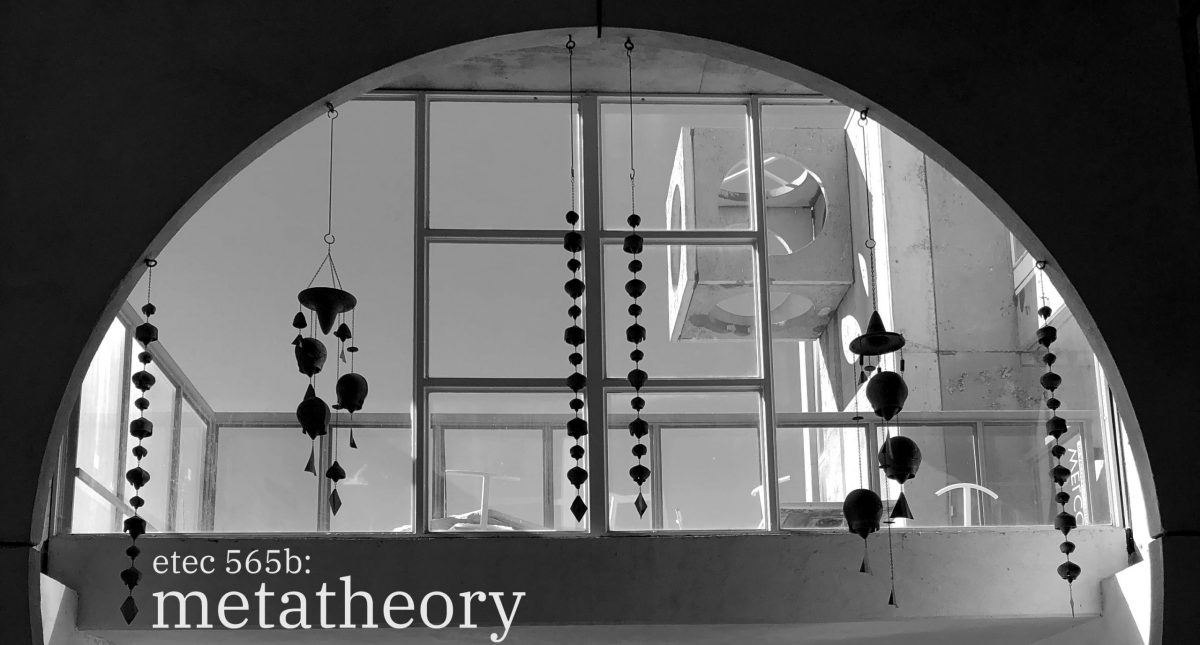“Let’s Start with Kindergarten” (2019) documents a conversation between artists-educators Lisa Jarrett and Harrell Fletcher who focus on participatory education, a pedagogical methodology that encourages creative collaboration amongst learners and the participants that form their learning environment. Jarrett and Fletcher’s dialogue centers around their ongoing project, “a living, functioning contemporary art museum inside, alongside a living and functioning public school” (p.28), called KSMoCA (the Dr. Martin Luther King Jr School Museum of Contemporary Art). A key aspect of the project is “…about access and exposure” (p. 28). Jarrett shares her experience working as a black woman in an elementary school, situated in a historically black neighbourhood, attended by black students and students of colour, and the importance of having the opportunity to share the works of artists that are meaningful to this community – artists and experiential learning that the students would otherwise not have access to in their standard curriculum:
We ask: Who are the people we’re inviting in? How relatable are they to our students? Personally, it matters to me because I think about how illegible my own historical and cultural experiences were over the course of my entire education… If arts education remains limited in that way, the picture that emerges from what I described above is not one that reflects me or anybody like me, right? (pp. 31-32)
The design of KSMoCA demonstrates a conscious shift away from “this dominant Western narrative” (p. 44) engrained in art education and the greater art world. This same theme is apparent in Brayboy and Maughan’s (2009) reflection of indigenous student teachers who illuminate for their own teachers that the standardized lesson plans they are being taught to implement reflect a Westernized world view, not the Indigenous Knowledge Systems that they and their future students share. In both examples, the educators are motivated to teach from a place of authenticity, rather than a system imposed upon them, “…all knowledge cannot necessarily be universal in its application because of the importance of space, place and context” (Brayboy and Maughan, 2009, p. 10).
Jarrett and Fletcher are full-time professors at Portland State University (PSU); they consider KSMoCA to be participatory education, but also art in the medium of social practice. KSMoCA is not only a collaboration with the school, the students, and visiting artists, they also operate alongside a curatorial-based project at a nearby high school. Additionally, Jarrett and Fletcher have designed PSU undergraduate and graduate courses to engage with KSMoCA. Their art museum inside a public school exists as a dynamic and multi-level collaborative system of participatory education. Mitra and Crawley’s (2014) summary of their studies of self-organized learning environments showed that “groups of children seemed capable of dealing with questions several years ahead of their time when they worked in unsupervised groups and had access to the Internet” (p. 87). So, what happens in a scenario like KSMoCA when students are provided direct personal access to a wide array of artists, academics, and other students at varying levels of experience, that are ready to collaborate with them in participatory learning?
When pedagogical methodologies are considered from beyond the constraints of traditional Western knowledge systems, innovative models are developed, such as KSMoCA. This kind of creativity: non-standard learning environments, multifaceted approaches to collaborative participation, and the thoughtful integration of the lifeworlds of learners and their community are aspects to be incorporated in technology-based learning. So often education technology mirrors its out-dated, in-person counterpart, yet the Internet alone affords users with the kind of access that can facilitate radically creative and meaningful learning.
References
Brayboy, B. M. J., & Maughan, E. (2009). Indigenous knowledges and the story of the bean. Harvard educational review, 79(1), 1-21.
Fletcher, H., & Jarrett, L. (2019). Let’s start with kindergarten. In H. Fletcher, & M. Sherman (Eds.), Shaped by the People: Conversations on Participatory Education (pp. 8–18). Pdxscholar. https://pdxscholar.library.pdx.edu/shaped_people/1
Mitra, S., & Crawley, E. (2014). Effectiveness of self-organised learning by children: Gateshead experiments. Journal of Education and Human Development, 3(3), 79-88.
